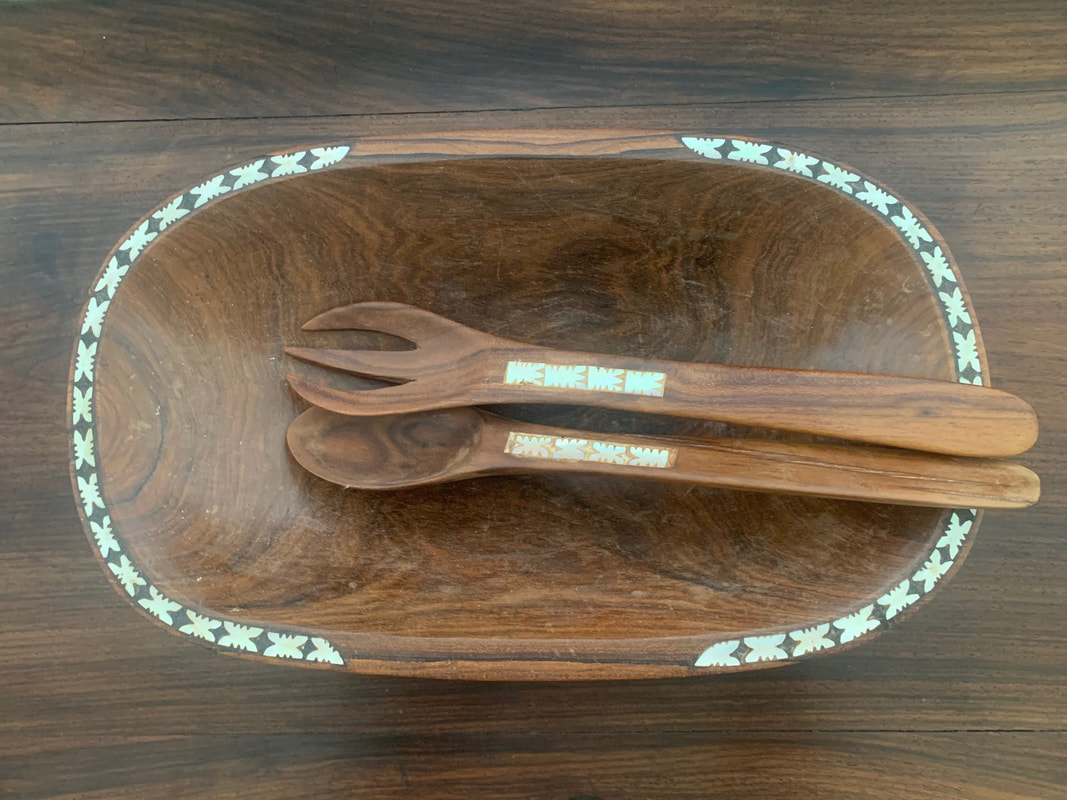 Debbie stopped full time work as an academic four years ago. This has given her time to focus on writing her parents’ story, and has developed into an interest in the writing process itself. She enjoys the challenge of how to capture people, experiences and moments in time. We got off the plane and felt the moist heat wrap around our faces; it was like stepping into a sauna as we walked across the hot tarmac to a shed with a tin roof. Inside it was even more stifling as we snaked our way slowly, in a long line, to be processed by immigration, sweat trickling down our faces, backs and the back of our knees. Thus began the next two and half years on Guadalcanal, Solomon Islands, with Mike working for the British Government’s Overseas Service Aid Scheme (OSAS) initially in the Honiara Technical Institute, later known as the Solomon Islands College of Higher Education, and me, although unbeknown when we first landed, as a translator of Japanese for the South Pacific Forum Fisheries Agency. We were taken to the Mendana Hotel. Bliss, there was air conditioning in our room. The next day we were plunged again into the heat, and taken to meet various staff members. At the first stop we were given neat gin and told: ‘Sorry, we’ve run out of tonic and other soft drinks’. A cup of tea would have been fine but that didn’t seem to be available. I was dehydrated and what little I sipped, seemed to go straight to my head. Then it was on to our new home. We walked into a single storey house, with no light bulbs, no curtains or soft furnishings, no fan, no water heater in the shower, and a double bed even though we had been told to pack for single beds. We had a loan chest with towels, sheets (single of course), melamine plates, cutlery and a few pots and pans to tide us over until our crate arrived from the UK three weeks or so later. There was no TV, only local radio or what we could pick up on short wave radio, although we were often invited to watch a video on a TV monitor as we made new friends and got invited into their homes for meals. I learnt to shop in the local market — the soil is poor in the Solomons and fresh greens were limited to local fern-like plants that went slimy if you cooked them too long. The saving grace were cheap bananas and plentiful pawpaw which we later grew in our garden from the seeds. Fresh Western fruit and vegetables were expensive — an apple cost 90 cents and a lettuce $3, this was 1984 — and available only when the ship arrived about every three or four weeks. You had to be quick to get to the shop in China Town before they sold out. There were two supermarkets, one being a small Foodtown which sold cheese that was out of date and beginning to go mouldy – rejects from New Zealand. Although we had said we wouldn’t employ any help, we did within a few weeks when I realised that housework and laundry were difficult without the usual convenient equipment, in that environment. This was when we met the lovely Irene, a 54 year-old Solomon Island woman who’d had polio as a child which affected her gait. She’d been asking for work in the market and a friend suggested I employ her. She was old for a Solomon Islander and had $12 left in the bank. She was special. I really believe she was sent to look after us, even though she was a bit calamitous with her ironing and breakages. It was a challenging experience, hot in the dry season and even hotter in the wet season, and totally draining of one’s energy; we lived through a cyclone and an earthquake, and learnt to navigate ‘Island Time’. We had to take antimalarials to protect us against the malaria carrying mosquitos present from dusk until dawn, there was a deadly snake, big spiders, poisonous seashells, saltwater crocodiles and the occasional shark. Our underwear was often attacked by ants — they loved the elastic. But I wouldn’t have missed it for the world. I learnt the value of clean water, electricity, secure supplies of fresh food, and I learnt to be resilient. I realised the importance of building relationships and making friends, and the pleasure of sharing a simple meal with them. This bowl, a gift from a Solomon Islander, with its smooth surface and rim of mother of pearl inlay, is my reminder of that very special time, and keeps me grounded whenever I touch it. Comments are closed.
|
Your StoriesPlease submit your story via the Contact page and it will receive a gentle edit from Deborah.
Authors
All
Archives
December 2022
|
 RSS Feed
RSS Feed